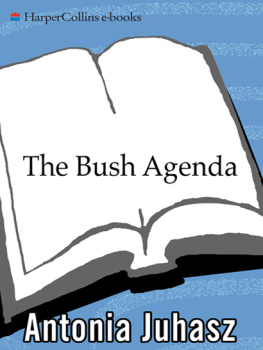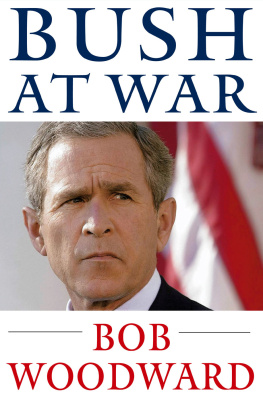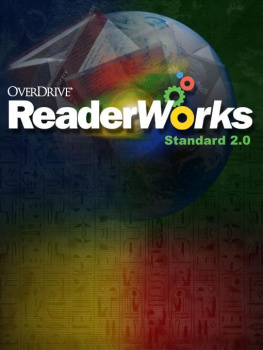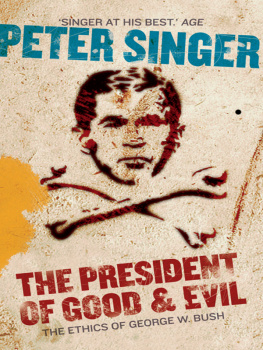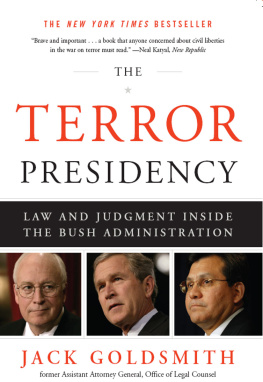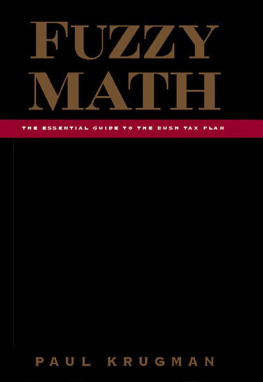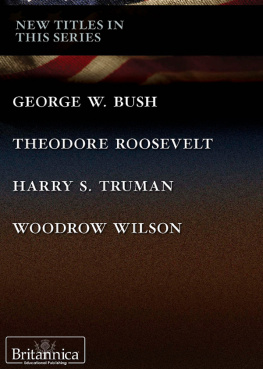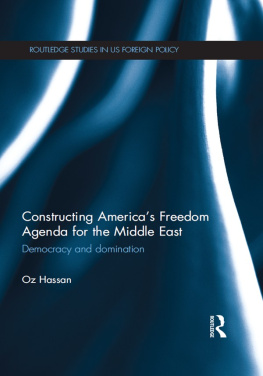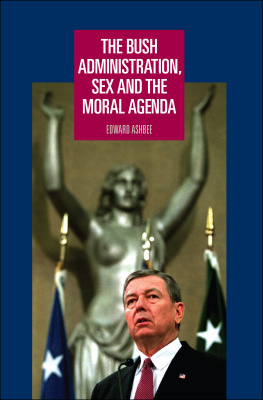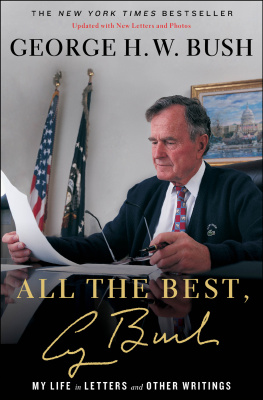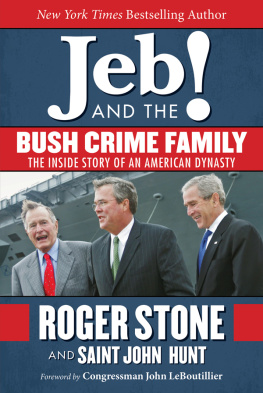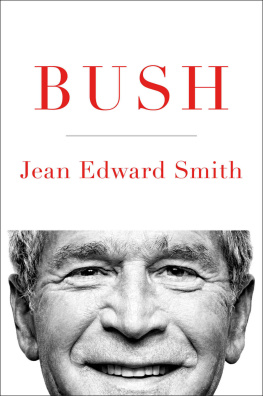To my family, for your unending support: Joseph, Suzanne,
Alex, Jenny, Christina, Linda, Paul, Branny, Emma, Eliza,
Simone, and Gabriel.
To Sunny, for your love.
To my community, for the hope you give me.
To the movement, because change is afoot.
The current flows fast and furious. It issues in a spate of words from the loudspeakers and the politicians. Every day they tell us that we are a free people fighting to defend freedom. That is the current that has whirled the young airman up into the sky and keeps him circulating there among the clouds. Down here, with a roof to cover us and a gas mask handy, it is our business to puncture gas bags and discover the seeds of truth.
Virginia Woolf,
Thoughts on Peace in an Air Raid, August 1940
Contents
The Bush Agenda
Ambitions of Empire
A Model for Failure: Corporate Globalization
The Corporations: Bechtel, Chevron, Halliburton, and Lockheed Martin
A Mutual Seduction: Turning Toward Iraq
The Economic Invasion of Iraq
Exporting Free Trade in Place of Freedom to the Middle East: The U.S.Middle East Free Trade Area
The Failure of the Bush Agenda: A World at Greater Risk
A Better Agenda Is Possible
What a Difference a Year Makes
A n uncharacteristically somber George Walker Bush approached the podium of the Great Hall of the United Nations on September 14, 2005. As the president stood in midtown Manhattan to address the gathered members of the General Assembly, much of the U.S. Gulf Coast lay buried beneath a sea of water, mud, waste, sand, and debris. Two days before, the bodies of forty-five people had been discovered in a flooded New Orleans hospital, adding to a death toll that already exceeded a thousand. Over one million people were without homes, including tens of thousands just recently released from the New Orleans Convention Center and Superdome, where they were forced to stay for almost a week without food, water, or electricity while outdoor temperatures exceeded a sweltering 100 degrees.
The president selected the sixtieth anniversary of the founding of the United Nations (UN) for his first speech before the international community in the wake of the storm. It was a fitting choice given that the 2005 UN Summit was dedicated to the global eradication of poverty. The storm had forced the worlds wealthiest nation to take notice of the destitution in its own midst when Katrina struck an area where more than one million people, or nearly one-fifth of the population, lived in poverty. Katrinas $200 billion price tag was rising, earning the storm the dubious distinction as the most expensive natural disaster in U.S. history. In response, 115 nations (including Rwanda and Ethiopia, two of the poorest countries in the world), all of whom were represented at the UN Summit, donated money or other forms of assistance to the United States in its hour of need.
This would be President George W. Bushs fifth address before the UN General Assembly. Two months after September 11, 2001, he established an annual tradition of addressing the Assembly within days of the anniversary of the terrorist attacks and just miles from ground zero. The president has used each speech to put forward his international agenda squarely within the context of 9/11. It was with these speeches that Bush made the case for war beyond Afghanistan, into Iraq, and against all states that harbor terrorists; he laid out the criteria for those who are with versus those who are against us as he built a coalition of the willing; and he affirmed his commitment to expanded international trade policies in the name of fighting terrorism and spreading freedom.
To those who watched the presidents previous UN addresses, it was clear that in September 2005, recent events were weighing heavily on him. On the same day that bodies were found in the flooded New Orleans hospital, the presidents leading federal official for emergency management, Michael D. Brown, was forced to resign amid widespread criticism of the administrations failure to prepare for the highly anticipated arrival of Hurricane Katrina and to adequately respond to its aftermath. Though the president spoke of directing federal funds to the local communities affected by Katrina, it had only recently been revealed that companies such as Halliburton and Bechtel, located in Texas and California respectively, with intimate connections to his administration were receiving multimillion-dollar reconstruction contracts while local companies were shut out. The president personally faced growing charges of political and corporate cronyism, mismanagement, and even racism in his response to the storm, contributing to the lowest job approval ratings (41 percent) of his presidency at the time, and the feeling expressed by a majority of Americans polled that
The president, visibly tired, spent much of the speech looking down at his notes. His familiar easy swagger, comfortable grin, and animated gestures were all but missing. True to form, however, he made no alteration to his message. Bush spent a mere ninety-five seconds of the twenty-five-minute speech discussing the hurricane. He noted the devastation, thanked the gathered nations for their support, and moved on. Then, as he had done every year for the previous four years, the president devoted the bulk of his address to just two topics. The first, not surprisingly, was the war on terror, including the war in Iraq. The second was the expansion of free trade. Once again, Bush offered these two policies, war and free trade, as twin solutions to virtually all of the worlds problemsfrom global poverty to international health crises, including AIDS, malaria, and the Avian fluand as the means to achieving a better world.
The president described the benefits of war and his administrations commitment to it by assuring his listeners that all of us will live in a safer world if we stay the course in Iraq and complete the war effort. The United States and all civilized nations would continue to take the fight to the terrorists and defeat the terrorists on the battlefield. As for free trade, Bush explained that the United States would also defeat the terrorists by fighting poverty and the surest path to greater wealth is greater trade. By expanding trade, we spread hope and opportunity to the corners of the world, and we strike a blow against the terrorists. Our agenda for freer trade is part of our agenda for a freer world.
The agenda has been refined by President Bush and leading members and allies of his administration over decades, dating back most notably to the administration of his father, George Herbert Walker Bush. Its leading framers include men who served in the administrations of both father and son, such as Dick Cheney, Donald Rumsfeld, Paul Wolfowitz, Zalmay Khalilzad, Robert Zoellick, and Scooter Libby. Decades of joint writing, refining, and advocating for a set of clear economic and military principles reached its fullest articulation and most aggressive implementation under the administration of George W. Bushwhat I call The Bush Agenda. This agenda predates the current president, however, and its advocates certainly hope it will outlast him.
Within the Bush Agenda, freer trade for a freer world refers to specific economic policies designed especially to support key U.S. multinational corporations that are used as veritable weapons of war, both in the war on terror and in the administrations broader struggle to spread its vision of a freer and safer world. Often, these economic policies are applied in tandem with Americas military forces, as was the case in the March 2003 invasion and ongoing occupation of Iraq. To date, the Iraq War represents the fullest and most relentless application of the Bush Agenda. The freer and safer world envisioned by Bush and his administration is ultimately one of an ever-expanding American empire driven forward by the growing powers of the nations largest multinational corporations and unrivaled military.

